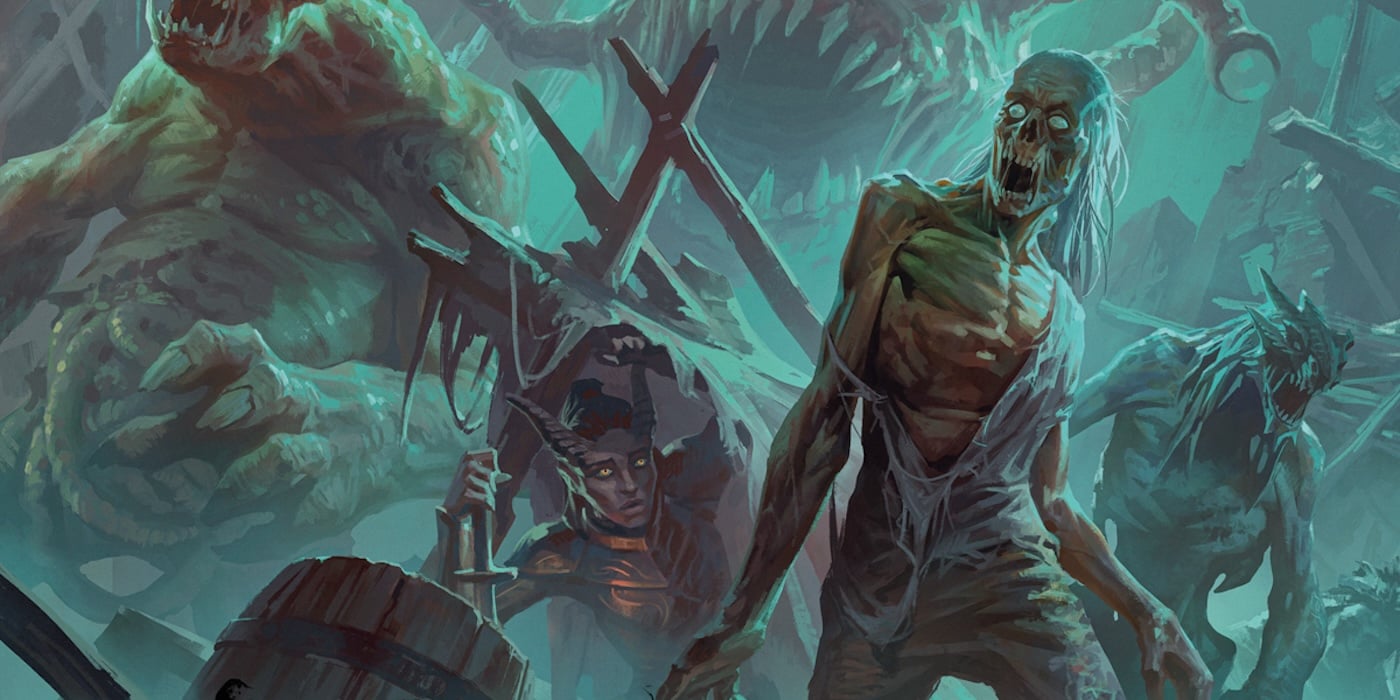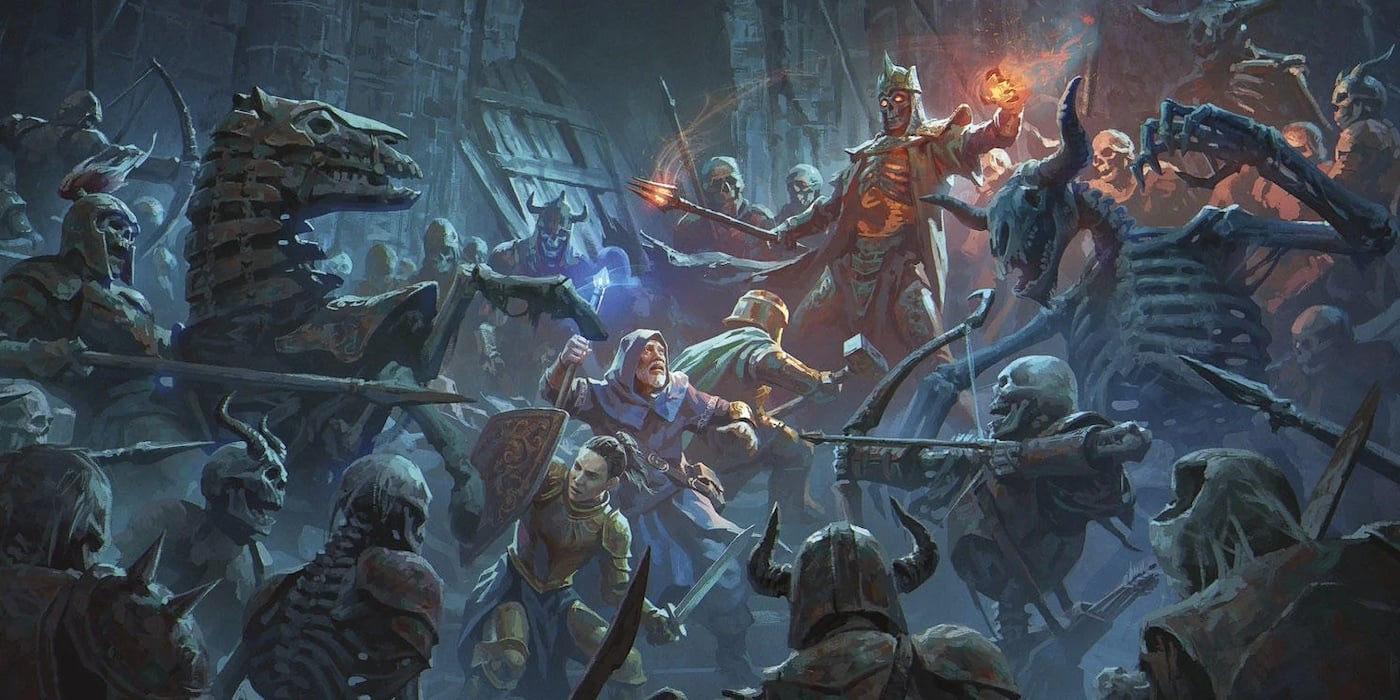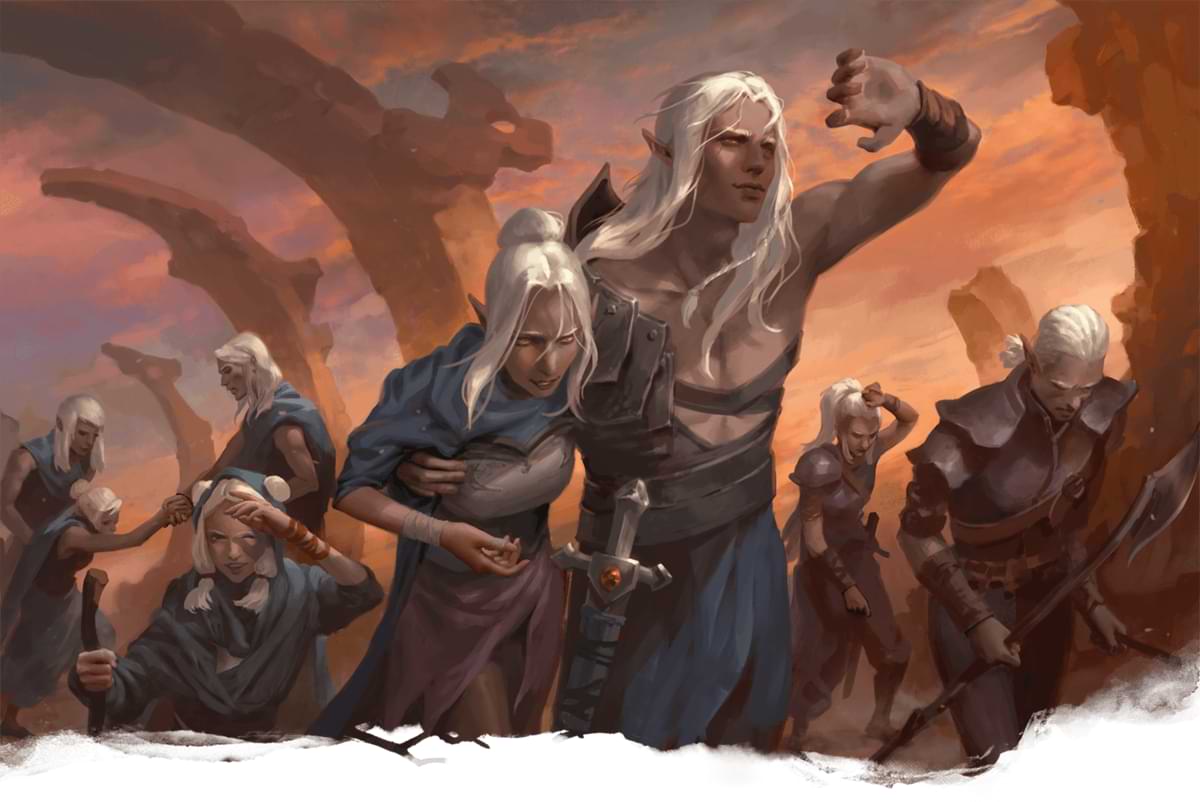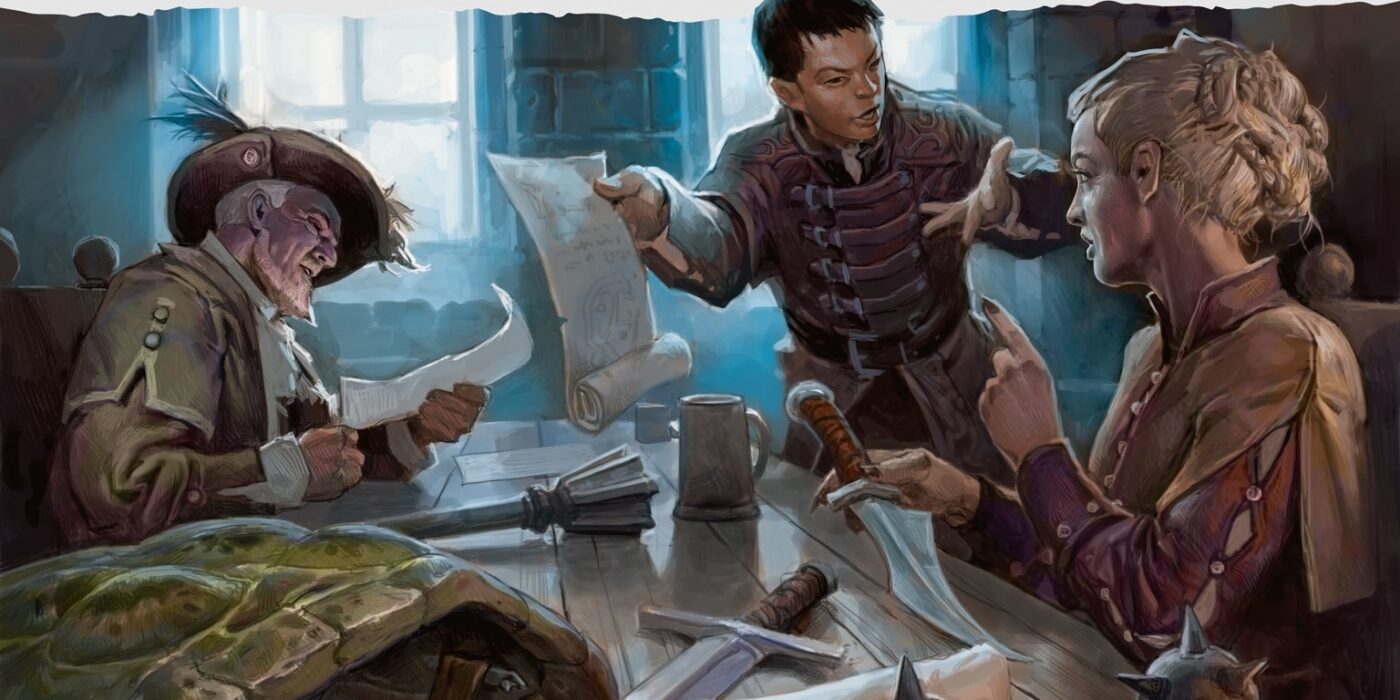In D&D, you will win most fights you get into. That’s the nature of the game. But how do you tell when your party is about to be cooked?
Dungeons & Dragons, especially 5.5E, is very generous to its player characters. Odds are good that you will win most of the fights you get into. But, pointedly, most is not all. There are a few that you may well lose. Especially since running away isn’t always an option for the unprepared.
Because there’s really not that much difference, in terms of fighting capabilities, when your whole party is at full hit points, than when they only have 1 or 2 hit points left. But once PCs start to go down, it starts to get messy. So here are some ways you can tell your party is cooked. Your mileage may vary, but if you start to see a number of these signs, it might be time to run.
Taking Big Time Damage

Perhaps the biggest sign that you have bitten off more than you can chew is when the DM rolls the damage dice for whatever it is you’re fighting and the whole party, even the Barbarian, winces. When an enemy starts dealing high double digit damage in a single turn, that’s a sign you are in danger.
This is because things typically do more damage the higher CR they are. And since you don’t often know what a creature’s hit point total is, you have their to-hit bonus and their damage totals to judge by. If the DM starts saying things like, “I rolled badly, you only take 63 points of damage” it’s probably time to consider running. Similarly if the monster seems to hit you even if the DM rolls a 3. Big numbers means big chance that your party should leave before round 3.
New Wave (of) Monsters

Another time that you might consider running is when the circumstances of the fight change. Again, this doesn’t mean you’re instantly cooked. But if a door opens and more reinforcements come running through? Or if a portal opens up and a demon steps through? Or the surviving cultists begin to pulse with an unnatural, fleshy rhythm, it might be time to go.
Especially if you weren’t crushing them handily before things changed. Fights should feel dynamic, but when there’s a big change that isn’t in your favor, it might be time to take stock of everyone’s hit points.
Outnumbered

You will often be outnumbered in D&D. That’s just how it goes when you’re in a party of 3-4 heroes brought together by fate. But if you start to be outnumbered by a lot – maybe 4 to 1 or more, it might be time to look for an exit.
This is because numbers are the greatest power in D&D. The more guys you’re fighting, the more chances the DM might crit you into oblivion. Now, again, if you’re only getting crit for like 6 or 7 points of damage, that’s probably fine. But if the outnumbering creatures are doing real damage (not even a lot, but enough that you consistently notice it), then you might be cooked.
Especially if your party is still outnumbered (by a lot) by round 3 or 4.
The Fight Goes On

Most fights in D&D, despite how long they take in real life, are actually quite short. It is rare that a fight goes more than 3 or 4 rounds. When that happens, it’s usually for a couple of reasons. A) it’s a big dramtic fight that your DM has made dynamic with varied objectives. B) you’re running through a big ongoing event/fight. C) your party is about to be cooked.
Even in those other situations, you usually have a sense of “oh we’re winning this fight” by the time round 4 rolls around. Even if you’re outnumbered, you’ve made a dent in the enemy’s fighting capabilities. You’ve thinned out the enemy ranks, burned through Legendary Resistances. But if you hit round 3 or 4 and the enemy isn’t even looking bloodied? Time to get out of there.
The DM Asks ‘Are You Sure’
And hey, sometimes you just get a sign from the DM. They say something like, “are you sure you wanna do that.” Or, “hey just a heads up this fight could be deadly.” Or, “okayyy if that’s what you really want to do.”
Because the DM doesn’t want to wipe you out. Mostly. But they do want your actions to have consequences. And sometimes that means reminding the players that it’s possible for actions to have consequences, they just have to try and check you beforehand. That way you can’t say the DM didn’t warn you.
Happy adventuring!
Don’t Miss:
Read more at this site

